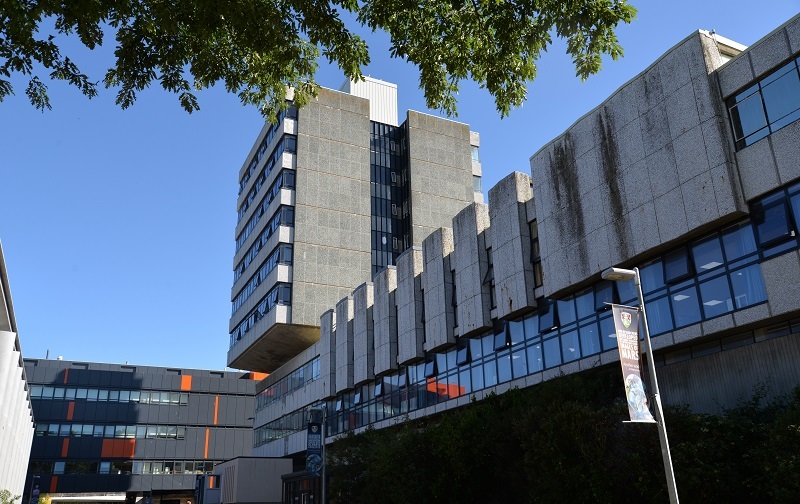Aberystwyth University leads £3m project for Wales’ growing geospatial and space technology sector

13 July 2018
A major new EU backed initiative to help companies in Wales exploit the fast-growing spatial intelligence market is being led by Aberystwyth University.
The Geographical Data and Earth Observation for Monitoring (GEOM) programme sees scientists at the Department of Geography and Earth Sciences at Aberystwyth University collaborate with QineitQ to help Welsh companies exploit state-of-the-art satellite and drone technology.
Data provided by the technology can provide vital information for a range of sectors, including agriculture, energy, security, environment, transport and infrastructure.
The £3m initiative backed with £1.9m of EU funding through Welsh Government was announced by Finance Secretary Mark Drakeford AM on Friday 13 July 2018.
Its aim is to identify new and innovative ways of capturing and analysing spatial intelligence and geospatial data through satellite and drone technology to develop market-ready products and services.
Mark Drakeford AM said: “This is another great example of how the Welsh Government is investing EU funds to position Wales as a competitive and outward-facing nation. Driving innovation through world-class research and expertise in our universities alongside businesses will secure investment and employability in this fast-growing sector. Wales has benefited hugely from EU funding over the years and this once again highlights the importance of securing replacement funding for Wales once the UK leaves the EU.”
The project will be led at Aberystwyth University by Dr Peter Bunting from the Department of Geography and Earth Sciences.
Dr Bunting said: “With the advent of mobile technologies, apps and smart systems linking with geospatial data derived from space systems these technologies are playing an even increasing role in our economy and day to day life. This rapidly growing area is just beginning to realise the potential for extracting spatial intelligence from drone technology. Through GEOM we can ensure that Welsh companies are at the forefront of this exciting and growing area, enabling job creation and the development of new products and services.”
Aberystwyth University will work with up to 25 companies, already using such technologies, to help address challenges affecting the environment, agriculture, transport, energy and infrastructure.
For example, drones can be used to map hazards such as overhanging trees or over steepened embankment slopes along railways lines that would be dangerous and expensive to collect on the ground.
Satellites can be used to monitor forest plantations to give early warning signs of disease or stress.
The Geographical Data and Earth Observation for Monitoring (GEOM) programme will focus on capturing data to enhance environmental monitoring, precision agriculture, transport and energy infrastructure, search and rescue, overseas aid/relief and geomatic surveying.
